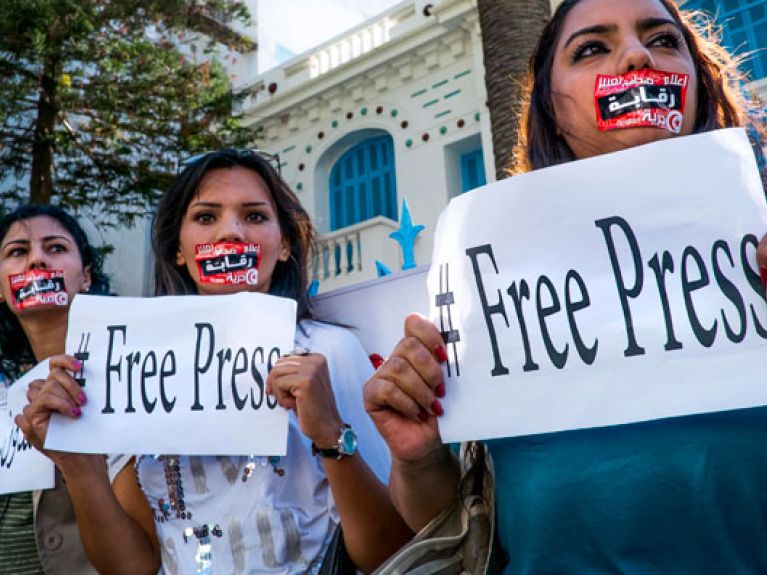Renowned Journalists on Freedom of the Press
To mark World Press Freedom Day, renowned journalists describe to deutschland.de what freedom of the press means to them.

Sabine Rückert, deputy editor-in-chief at German weekly “DIE ZEIT”: “Our democracy hinges on freedom of the press. The balance between freedom and responsibility in a society can be seen from its press laws. Well-researched and intelligently interpreted information is as important as clean water for a society. Or to put it the other way around: a society that does not permit free, independent media with the best interests of that society at heart poisons itself – through misinformation and propaganda. Nowadays, the freedom of the press in Germany is threatened not so much by politicians as by the fact that newsrooms have had their budgets so drastically cut that texts from marketing departments and lobbyists are printed without being checked. After all, the other side of the press freedom coin is the obligation of the press to provide quality reporting.”
Astrid Frohloff, executive board spokesperson for the German branch of Reporters Without Borders: “For me, freedom of the press means being able to report on any subject without fear of violence or reprisals. As a television correspondent in the Middle East, I experienced at first hand how the work of journalists was obstructed, restricted or prohibited in authoritarian states. Videos were censored, colleagues and employees were shot at and injured. Two of my colleagues even had to pay for their dedication with their lives. This is why I am committed to ensuring that journalists around the world are allowed to report unhindered and do not end up in prison or have to pay with their lives for making critical statements.”
Erik Bettermann, director of Deutsche Welle (DW): “For me, freedom of the press is a precious commodity, especially given Germany’s history. It is what makes a functioning, thriving democracy possible in the first place. Thanks to the freedom of the press, we in Germany have a media spectrum that leads the world in terms of its freedom, diversity and quality. Two thirds of the world’s population live in countries whose governments monitor, control or suppress the media and those who work in them. For 60 years, Germany’s foreign broadcasting service has promoted independent opinion-making and decision-making by providing comprehensive and reliable information. What is more stimulating that engaging critically with new ideas, different experiences and perspectives? Tolerance is the daughter of press freedom.”
World Press Freedom Day on 3 May
www.reporter-ohne-grenzen.de
www.unesco.de/pressefreiheit.html
© www.deutschland.de